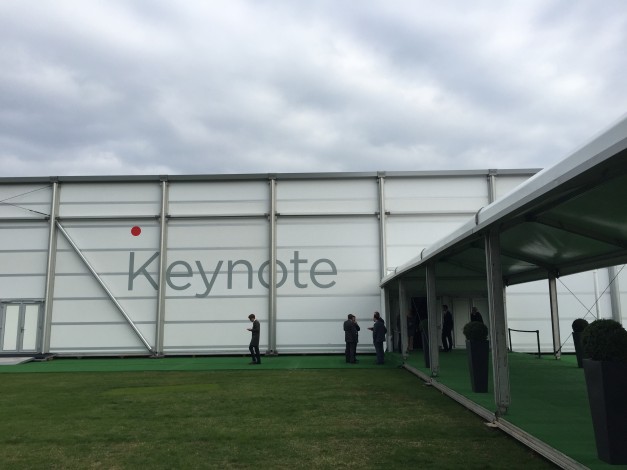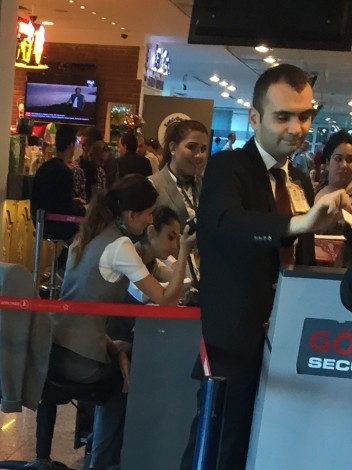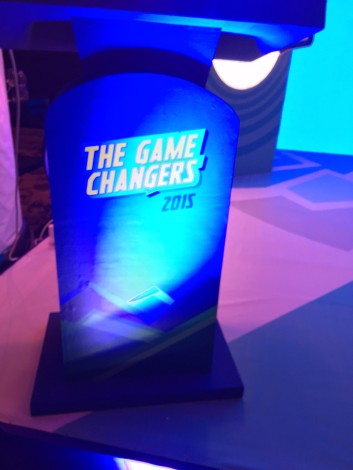
Today 15 000 people met for a huge Canon Event in Paris.
Canon’s clients from all over Europe, Middle East and Africa had flown in for this two-day event that only happens once every five years.
All the clients from Eastern Europe, Middle East and Africa had their own “event within the event” which begun with a passionate keynote speech by the amazingly dynamic and active 80-year old (!) Chairman of Canon Fujio Mitarain. 80 years old!
During the whole day there was only two external speakers:
One was Gary Knight – an award winning war-photographer who is starting a CSR project for Canon in East Africa.
The other one was me.
That Canon invites Gary Knight makes total sense since he has a connection to Canon, is an awarded photographer and is running this CSR project.
But I have zero connections to Canon.
I do not even live in the region.
So one way to look at it would be to say that Canon could have selected any professional speaker in the world to close their conference, yet they selected me.
For that I am, of course, very happy.
It was one of those conferences that has it all: big audience, people from all over the world, big, global company as a client, in a nice place (Paris) and with an interesting industry (digital imagining is ready to explode and Canon is at the heart of it and I saw some really, really cool technologies that they are ready to launch soon.)
So I must have been very lucky to get this speech, right, considering how many speakers from around the world who probably would have loved to do this assignment.
Yes, I think i was lucky.
But actually, and this is the point with this post, it is EASIER to get a big, global speaking gig than a small, local one.
That might sound counter-intuitive but let me explain.
If you look at yourself as a “local speaker” (say a “Singaporean Speaker”) who only speak in Singapore you might think that there is less of competition because you are “only” competing with the other local Singaporean speakers.
But that is not true.
Because someone who is booking a speaker in Singapore might very well decide to fly a speaking in from somewhere else.
Now, if you instead look at yourself as a “global speaker” then yes, it is true that you compete with “all the other speakers” BUT you also have a much larger pool of potential speeches that you might get.
The completion has increased by going global, but so has the supply of potential speeches you could get.
Insight: There must be tens of thousands of conferences in the world on any given day that is looking for a speaker. By considering all of them your potential market your market has become virtually infinite.
Have the mindset of abundance and think global, instead of having a mindset of scarcity where you narrow your potential business opportunities.
(Suggestion: Submit your email address in the form to the right to get a convenient email summary in your inbox every time 10 new posts have been posted.)
Contact Fredrik by clicking on the email symbol below.

